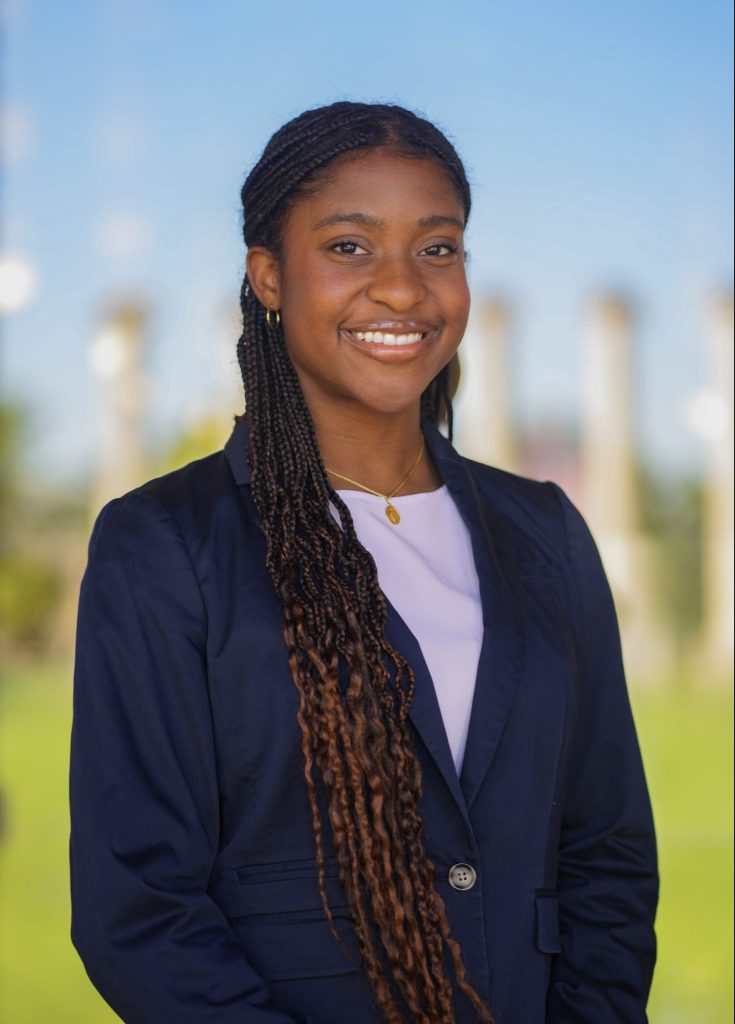Published on Oct. 11, 2022

As an MU freshman at the height of the COVID-19 pandemic, finding the balance between a social life and the preservation of my health was a challenge. I often felt trapped by fear, anxiety and loneliness, wishing for the semblance of togetherness that college was supposed to give me.
My first football game, Sept. 26, 2020, Mizzou vs. Alabama. It was my first taste of what college had the potential to be. Hosting the top ranked team in the country, the stadium was packed, the noise and ambiance of Faurot Field was the best kind of overwhelming. Filled with cheers, laughter, sunshine, and hot dogs. I was euphoric, invincible that day. In the hours that followed, though, the happiness I was basking in quickly dissipated.
Later that night, I got a FaceTime call from my sister. The second I picked up there was an unmistakable feeling that something was wrong. Her features were tight, voice coated in panic. She told me that my paternal grandfather had suffered a heart attack and that he was in the hospital. She said she’d call me back with more details and abruptly hung up.
Not even 20 minutes later, my sister called me back. Except it wasn’t my sister on the phone, but my mother. I knew right in that moment — he was gone. I could hear my dad crying in the background, the gut-wrenching sobs reverberating through the phone.
I wept. My entire body went numb. Sadness enveloped me and expelled endless amounts of tears. A montage of memories flashed before my eyes: his smile, the gravel of his laugh, his focus in teaching me sudoku. I rose out of my chair and sunk into the softness of my carpet, wanting it to swallow me whole and take my pain with it. Then, I got a knock on my door.
I opened the door to see my three neighbors from down the hall — all three of them Black women — staring at me with a worried expression on their faces. We did not know each other well — simple greetings in passing were the extent of our familiarity to each other, but I was too distraught to be embarrassed. I let them in, and they simply sat with me on my carpet, holding me in their laps while my tears flowed and my whole sense of reality inevitably changed.
With all that had happened that day, that is one of the main moments that stuck with me, even two years later. It was one of the first times I realized that a predominantly white institution could create a feeling of community and safety for me. It was an unspoken comfort and reassurance from Black women when vulnerability and sorrow seeped in.
The grieving process was difficult without my family. It felt as though nobody knew or could understand what I was going through, not in the way I did. Days blended into each other. My appetite diminished. I had little to no motivation to do homework, let alone leave my bed. Everything felt out of control.
Looking back at it now, I wonder what my grieving process would have looked like if I had truly used the resources in my proximity, instead of going at it alone and hoping that time would make it better.
MU Counseling Center
I recently spoke with Remya Perinchery, Ph.D. and Beth Shoyer Ph.D. from the MU Counseling Center to discuss how grief appears in the daily lives of college students and that of students of color.
Dr. Perinchery is a psychologist at MU and the coordinator of the Nurturing Minority Wellness program. Dr. Shoyer is a psychologist, the assistant clinical director of the MU Counseling Center and oversees the Recovering from Grief and Loss Group therapy class.
Below, I am going to highlight the biggest takeaways from our conversation. If you are someone who has experienced or is currently experiencing grief or loss, I hope you find this resource helpful for your healing process. I know it helped me.
“I think the first process [of healing] is just to acknowledge that you’re at where you’re at,” Perinchery said.
She noted that depending on the type of grief, situation and relationship to that person, there may be complicated dynamics to the grieving process. She also explained that navigating those feelings is a unique and individualized experience.
“Maybe it is taking a day off for yourself and being able to spend some time on your own,” Perinchery said. “Maybe it is finding that support if you have it, but the ways we find that support can look different especially if we’re away from home.”
Specific to students of color, Perinchery spoke about how having a sense of community can impact the experience as well. She discussed how finding support through a professional, family member(s) or support systems can help while still honoring their culture can help.
“Sometimes [in] some cultural practices, you know, mourning takes a week takes a week or longer than that, and sometimes that can be really disruptive to school,” Perinchery said.
When facing challenges like grief, the counseling center has a wide variety of resources to serve their students. Shoyer said that recognizing the specific type of grief is a key step in the process.
“The needs might be different depending on the type of loss and where people are with that loss,” Shoyer said.
The types of loss Dr. Shoyer mentioned were:
- Death (family members, friends, mentors, etc.)
- A certain expectation for your future
- End of a relationship
- Certain mindsets/beliefs once held
In terms of loss through death, Shoyer describes grief in two phases: the acute and post-acute period.
- Acute period: Happens right after the loss occurs, where the death feels very present and pervasive in your life. People may deal with intense symptoms and might need lots of support and some accommodation academically
- Post-acute period: Is a longer period of time, when you’re supposed to be returning to life. You are working to move on but are still affected by it.
To help navigate grief as it relates to death, the counseling center has a Recovering from Grief and Loss group where students can work through their emotions together with the guidance of a psychologist. Another option is one-on-one counseling sessions with a professional at the center to discuss grief among other issues that might be challenging students.
To begin work with the counseling center, students will first undergo a brief screening, a meeting with a physician, to figure out what kinds of services might be required. Within that meeting students can express the challenges they are facing as it pertains to grief. The physicians will decide the best course of action from there.
“They don’t even have to know about what they want, because our clinicians will say these are what we think would be helpful for you,” Shoyer said.
The center also has a People of Color (POC) Support Group and International Student Support Group for people of different identities and cultures to find a safe space.
Nurturing Minority Wellness Program
For a holistic wellness approach, the Nurturing Minority Wellness Program can be an option for students of color. It is a new program that began in Fall 2021. It was developed with a committee of staff at the MU Counseling Center, Wellness Resource Center, and was headed up by a graduate student named Maya Williams.
“We really started from the ground up of different outreach and programming for our students of color,” Perinchery said. “In particular, Black students, given their experiences at Mizzou, and feeling like that was where the need really was — to bridge that gap for students of color seeking access to mental health and wellness services.”
Perinchery explained how Nurturing Minority Wellness provides outreach programming and collaborates with various student and campus organizations. The goal is to build trust amongst the mental health of students of color.
To sign up for the Nurturing Minority Wellness program, use the QR code below.

The MU Counseling Center is located on the fourth floor of Strickland Hall. For more information visit their website: https://wellbeing.missouri.edu/.

CASE marketing intern Sarah Parisien is a junior journalism student who wanted to share her personal experience with loss in hopes of encouraging others to seek help. (Photo/Braiden Wade)